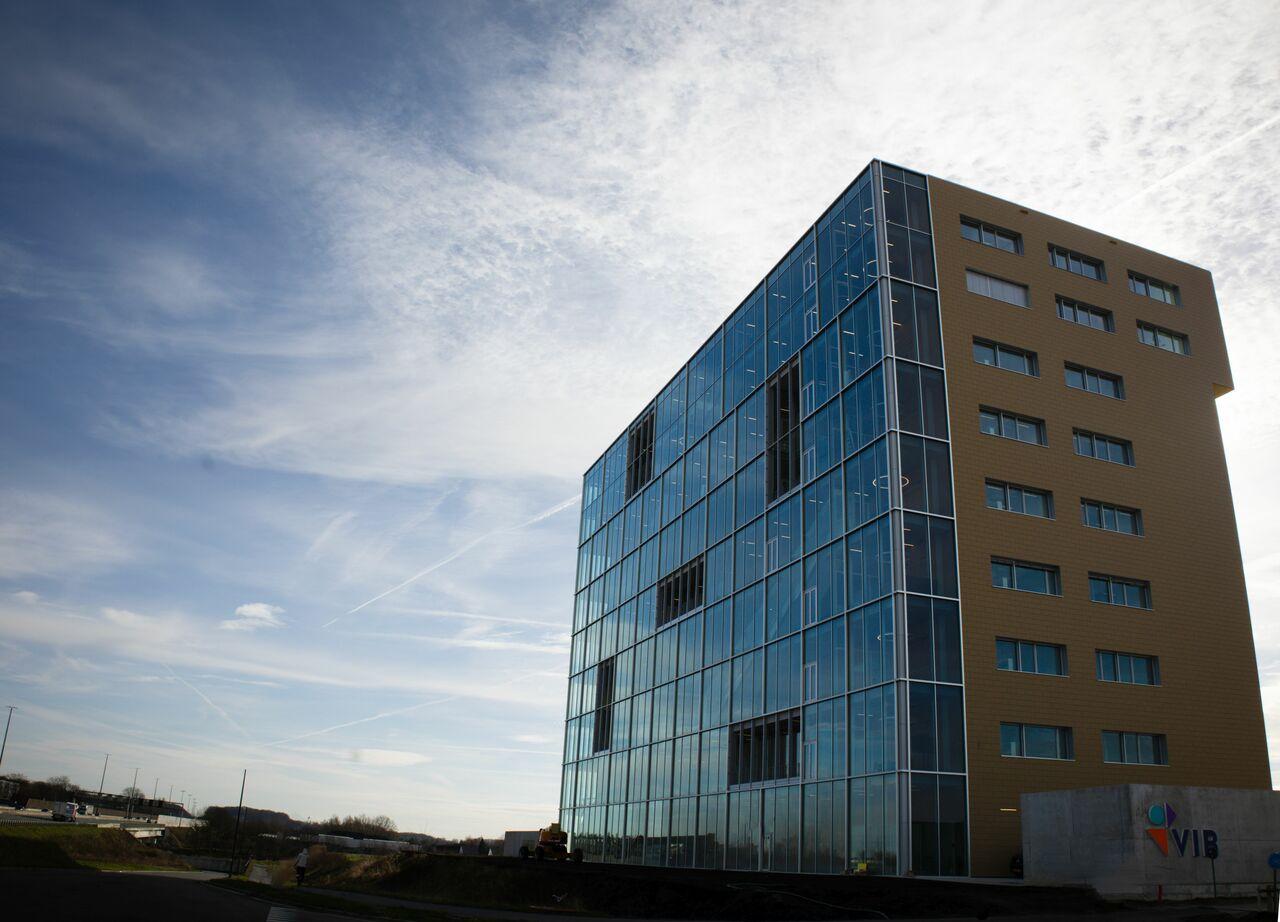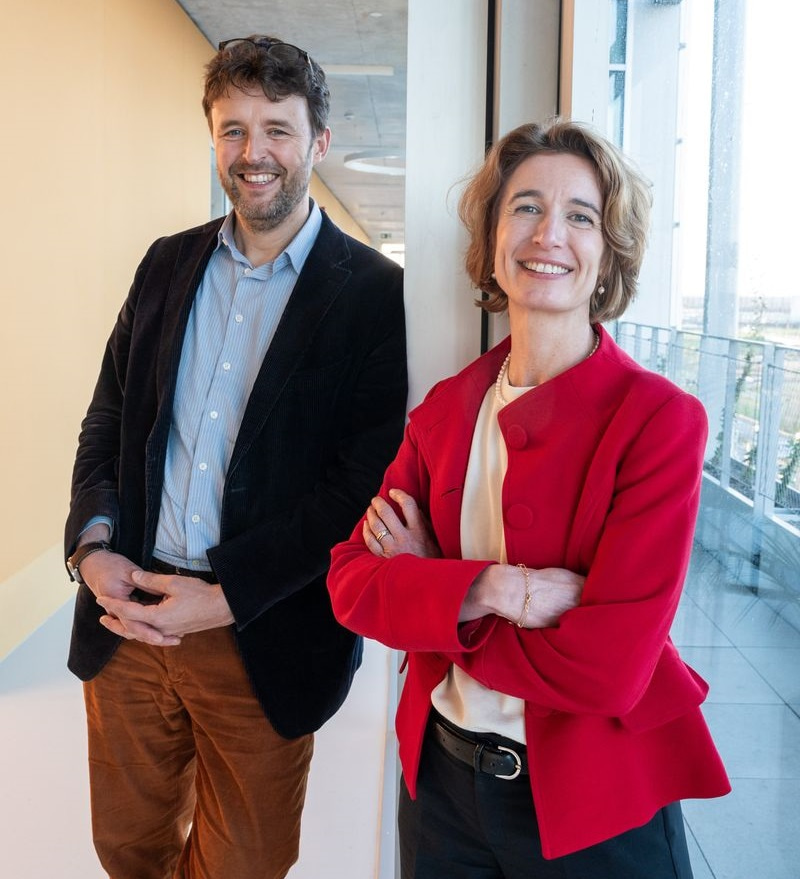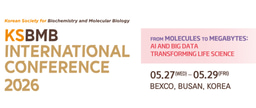Visions: Christine Durinx and Jérôme Van Biervliet, Managing Directors of VIB, Belgium


Jérôme Van Biervliet (left) has been Managing Director of VIB since 2020. He has 20 years of cross-disciplinary experience in the medical, business, and biotech environments. Prior to his position as Managing Director in the general management of VIB he has been in various roles in the VIB Innovation & Business office. Prior to joining VIB he worked as a consultant at Bain & Company, advising especially in private equity transactions.
Christine Durinx has been Managing Director of VIB since 2022. Before joining VIB, she led the SIB Swiss Institute of Bioinformatics, providing sustainable data services and research infrastructure for the life sciences. Previously, she worked for several pharmaceutical multinationals, in local and international roles, in Belgium and Switzerland. In addition to her position as Managing Director, Christine Durinx serves as a member, or provides expertise on juries, scientific advisory boards, and boards of directors.
VIB, nestled in the heart of Flanders, Belgium, is dedicated to pioneering research across a myriad of disciplines encompassing cancer, inflammation, neuroscience, and plant biology. Since our inception, we have strived to create an environment where scientific excellence flourishes, driven by collaboration, innovation, and inclusivity. At VIB, we believe that our scientific journey does not stop with the publication of academic papers; we are committed to translating this knowledge into concrete solutions for patients and agriculture. This societal impact is essential to our institute and has strongly contributed to a thriving biotechnology sector in our region. It takes a visionary government to realize that brains are an important local asset and to then prioritize long-term investments in the knowledge economy. Our scientists are an essential part of an ecosystem of academics, start-ups, and small and large companies, working together to create impactful solutions for society.
Cultivating a culture of excellence and support
Our fundamental ethos revolves around fostering an environment where researchers can thrive. We are committed to hiring the right people for the right roles and providing them with the technology and support to realize their full potential. As Managing Directors, our mission is to work tirelessly to create a stimulating and nurturing atmosphere where our 1,950 collaborators can embark on their journey toward groundbreaking discoveries. All our activities are evaluated by external experts in 5-year cycles, keeping our minds sharp.
From the outset, VIB has had a dual leadership model reflecting its double mission of excellence in research and excellence in entrepreneurial technology transfer. We are convinced that this joint directorship allows the institute to hire leaders with complementary skills that are unlikely to be present in one person at the highest level. By combining specific sets of expertise, we can manage an institute with the required level of experience and joint leadership. In our experience, this dual leadership model succeeds only because we prioritize constant dialogue, for example through regular meetings at set times, to ensure that our decisions reflect the institute’s strategy as a whole. In our case, Christine is responsible for science policy-related aspects, support services, communication, and technology, whereas Jérôme is responsible for innovation and business which includes all technology transfer aspects of the institute.
Embracing technological advancements
We are convinced that technology is the cornerstone of scientific progress. Our commitment to innovation is reflected in our proactive approach to scouting promising new technologies and integrating them into our research environment. By staying at the forefront of technological advancements, we ensure that our researchers have access to the state-of-the-art tools and resources necessary to drive meaningful societal impact. To take this approach to the next level, we have established an extensive core facility program, with more than 10 core facilities and multiple expertise units, which contributes to reproducible data sets and analyses. From CRISPR-based gene editing to spatial multi-omics analysis, we harness the power of cutting-edge technologies to unravel the complexities of life's processes.
One of those cutting-edge technologies we cannot afford to ignore is AI. Christine's background in computational biology has given us a prescient view on the latest developments in this field and how they relate to the life sciences. As a result, we've decided to invest in a new AI and computational biology center, VIB.AI, which also hosts the new data core, and exemplifies our commitment to leveraging emerging technologies for the betterment of society. This will be the first VIB-wide center, built on a close collaboration between the other research centers, and will become an anchor point for the computational groups that are already there. The current iteration of AI is a relatively young and fast-moving field, so recruiting for our new center is both exciting and demanding. We have already seen some outstanding candidates with exceptional skills in the field of AI-driven life sciences. Fortunately, we have a trump card in hiring: VIB's unique set-up, with access to both wet labs and other computational groups, makes VIB an attractive environment for computational biologists. We look forward to seeing the breakthrough research the newest member of our centers will enable.
We attach great importance to our teams' growth and development and ensure they have access to an extensive training program, featuring hands-on courses in soft and hard skills. Each year, approximately 1,900 participants benefit from our face-to-face training sessions, while 3,750 trainees complete one of the 20 online courses available on our training website. In addition, the VIB Conference series offers scientists the opportunity to showcase their research and meet international key opinion leaders. We are proud to say that last year, the 8 conferences we organized attracted close to 2,300 participants from 51 countries.
Excellence in entrepreneurial technology transfer
To take our science to society, the work of our Innovation & Business team is crucial. They translate the scientists’ discoveries into practical applications. Through strategic partnerships, licensing agreements, and the launch of spin-offs, VIB actively contributes to a better future and acts as a catalyst in the biotech ecosystem. We believe this approach stimulates economic growth and contributes to a better quality of life. Since our inception, VIB has launched 37 start-ups, attracting a total capital investment of 1.84 billion euros. These companies currently employ 920 staff members. Because the translational step has been part of VIB's mission since the very start, we have and maintain great relationships with key players in regional and international life sciences companies. Day-to-day this means that we closely follow the work of companies in the sector and keep in touch with the network of knowledgeable people we've built over the years. We have mentioned the role of innovation earlier, but the engines of progress require, above all, driven and inspired people. By maintaining close, mutually beneficial, and fruitful collaborations with various members of the overall biotech ecosystem, we find ourselves in a constellation of companies that push science forward in an impactful way.
Overall, our Innovation & Business team manages 283 active patent families, and VIB’s industrial income amounted to 138 million euros over the past 5 years. To further support the ecosystem, we have developed our new biotopeby VIB incubator program which assists biotech start-up teams in transforming their agrifood innovations into investment-ready businesses. Currently, the program supports 10 carefully selected companies from a wide range of countries with founders of diverse backgrounds, providing them with ongoing guidance and investment.
We are also committed to boosting starting biotech companies by investing in bio-incubators for start-ups, as access to advanced facilities helps ensure that scientists stay at the top of their field. In this way, we create an inspiring environment in which these young companies can grow. Our current portfolio includes bioincubators in Ghent, Leuven, and Brussels, as well as a state-of-the-art plant phenotyping installation and agro-incubator in Nevele.
Championing diversity and inclusion
Diversity is not merely a buzzword at VIB; it is ingrained in our DNA. With our 10 research centers comprising individuals from 78 different nationalities, we recognize the immense value that diverse perspectives bring to scientific inquiry. We are committed to fostering an inclusive environment where all voices are heard and respected and believe that diversity is not only a moral imperative but a prerequisite for meaningful innovation.
In 2023, our recognition of the importance of diversity, equity, and inclusion, inspired us to appoint a dedicated expert to ensure that these principles remain at the forefront of our organizational agenda. We are exploring different initiatives regarding autism specifically and neurodiversity in the broader sense. We have launched an employee resource group (ERG) for neurodivergent employees, which already resulted in one specific initiative that involves adapting our work environment to better suit the needs of autistic employees. Additionally, the VIB Way of Working (WOW) guide to support better team collaboration takes into account different working styles, personalities, and preferences. Our staff receives regular training in active bystander strategies to recognize and defuse potential micro-aggression and discrimination against diverse identities.
Together with the EU-LIFE GEDI (Gender Equality, Diversity & Inclusion) working group, we have discussed a joint webinar on creating safe and inclusive workplaces. In this context, we also cooperate with EU-LIFE on the Pathfinder mentoring program for female postdocs. The EU projects are part of our ongoing efforts to increase the representation of female group leaders, which have yielded encouraging results. The proportion of female group leaders has risen from 18% to 31% since 2018. While progress has been made, we remain steadfast in our commitment to supporting emerging leaders and providing them with the opportunities they need to thrive.
Commitment to ethical responsibility and sustainability
We recognize the ethical imperatives inherent in our research activities and we make it a priority to address these. For example, through our Policy for Responsible Research, we uphold the highest standards of integrity, ensure compliance with legal regulations, promote ethical conduct in handling bioethical issues, and adhere to rigorous integrity standards. With training and information brochures, we ensure that our scientists engage in safe and responsible research while being aware of potential bioethical issues.
Moreover, sustainability lies at the core of our institutional ethos. We are acutely aware of the environmental impact of our research activities and are committed to minimizing our carbon footprint. Initiatives such as mapping VIB's CO2 production, implementing sustainable travel and purchasing policies, and investing in renewable energy sources like solar panels underscore our dedication to environmental stewardship.
Conclusion
As we look toward the future, guided by our commitment to excellence, collaboration, and ethical responsibility, we remain determined in our pursuit of scientific discovery for the betterment of humanity. With a diverse and talented team, bolstered by state-of-the-art infrastructure and a culture of inclusivity, we believe that VIB is poised to lead the charge in shaping the future of life sciences.
For more information about our institute and our research initiatives, please visit www.vib.be.
Images by VIB.





Join the FEBS Network today
Joining the FEBS Network’s molecular life sciences community enables you to access special content on the site, present your profile, 'follow' contributors, 'comment' on and 'like' content, post your own content, and set up a tailored email digest for updates.